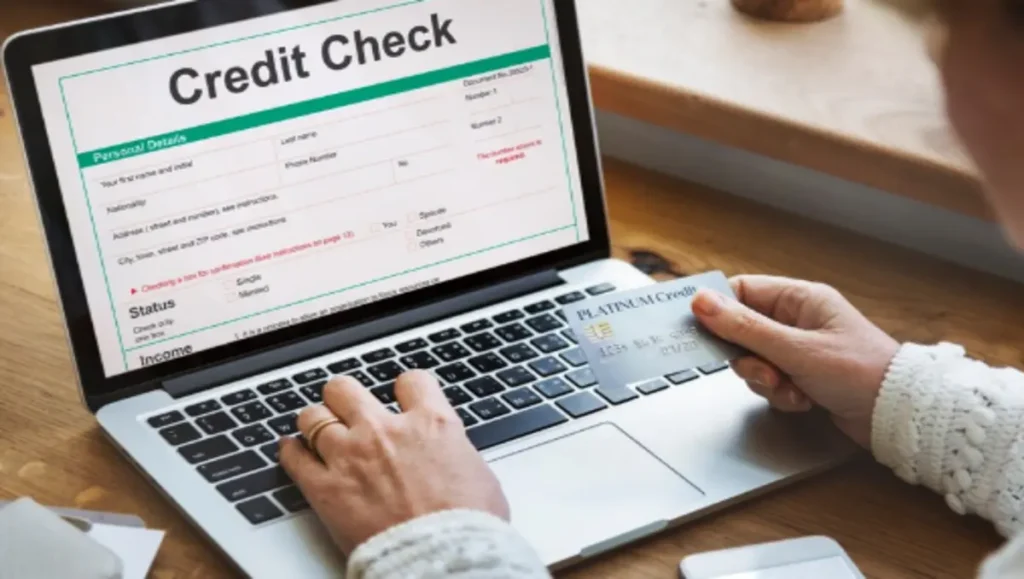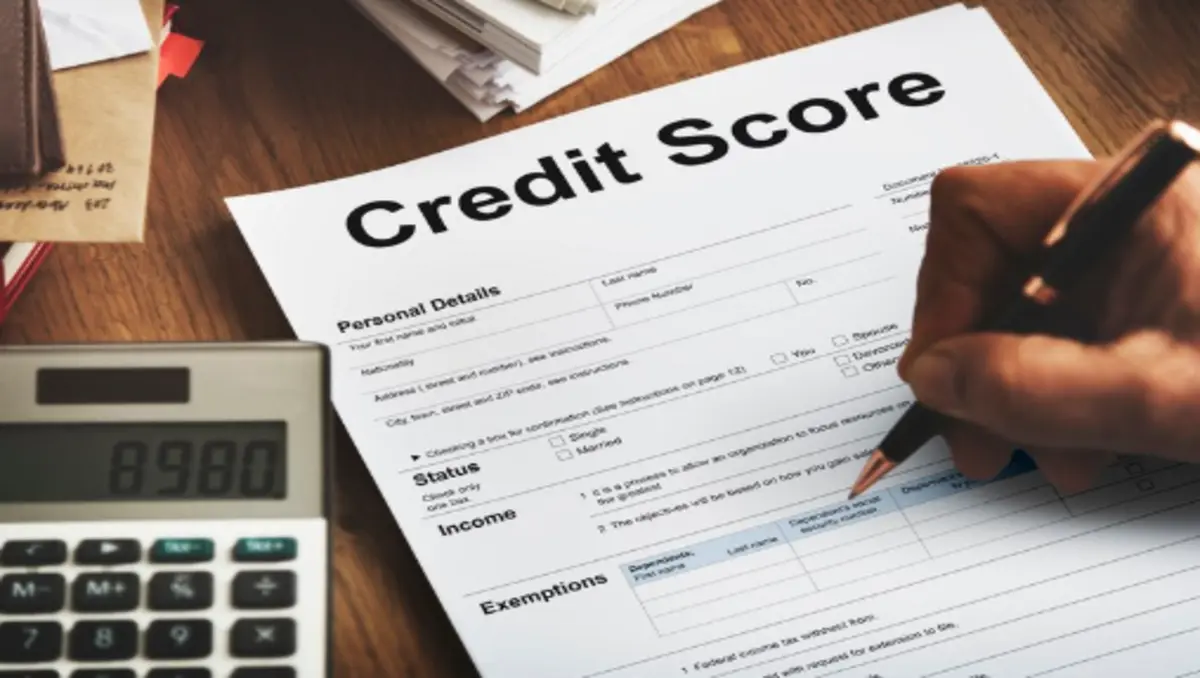A credit score is more than just a number. It represents your financial trustworthiness and plays a crucial role in your ability to secure loans, get approved for credit cards, and even rent an apartment. Whether you’re looking to buy a home, finance a car, or lower your interest rates, improving your credit score can open the doors to better financial opportunities.
In this guide, we’ll walk you through simple, actionable steps you can take to boost your credit score. These steps are designed with clarity and ease in mind to ensure everyone can improve their score, regardless of their current financial situation.
What is a Credit Score?
Before we dive into the steps to improve your credit score, let’s first understand what it is. A credit score is a three-digit number that typically ranges from 300 to 850. The higher the score, the better. This number is determined by various factors, including your payment history, the amount of debt you owe, the length of your credit history, the types of credit you use, and recent credit inquiries.
There are different scoring models, but FICO and VantageScore are the most widely used. Both models weigh the same factors, but they may have slight differences in how they score each one.
Why Does Your Credit Score Matter?
Your credit score is a reflection of your financial habits. A higher score shows lenders that you’re a reliable borrower, which could lead to lower interest rates, better loan terms, and a higher likelihood of approval for credit products. On the other hand, a low score can lead to higher rates, rejections, or fewer options.
Here’s a breakdown of how your credit score impacts your financial life:
- Loans and Mortgages: A higher score increases the likelihood of getting approved for loans and securing better interest rates.
- Credit Cards: Your score helps determine what types of credit cards you can access. A higher score gives you access to cards with better rewards and lower interest rates.
- Renting: Landlords may use your credit score to decide whether to rent to you. A good score can improve your chances of securing a rental.
- Employment: Some employers check credit scores as part of their hiring process, especially for jobs involving financial responsibilities.
Step-by-Step Guide to Improving Your Credit Score
Improving your credit score takes time, but with patience and consistency, you can make significant progress. Here’s how to get started:

1. Check Your Credit Report
Before you begin working on improving your credit score, it’s important to know where you stand. Get a free credit report from one of the major credit bureaus (Equifax, Experian, or TransUnion). You can request a free report once a year from each of these bureaus through AnnualCreditReport.com. Review the report for any inaccuracies, such as incorrect account information, late payments that were made on time, or accounts that don’t belong to you.
If you spot any errors, dispute them immediately with the credit bureau to have them corrected. Mistakes on your report can negatively affect your score, so it’s important to address them as soon as possible.
2. Pay Your Bills on Time
Your payment history makes up the largest portion of your credit score, usually around 35%. Late payments can seriously hurt your score, and the more recent they are, the greater the impact.
To improve your score, make it a habit to pay your bills on time. Set up automatic payments if you’re worried about forgetting. This includes credit card bills, utility bills, car payments, and mortgage payments.
If you’ve missed a payment in the past, catching up as soon as possible is key. The longer you wait, the more it will hurt your credit score.
3. Reduce Your Credit Card Balances
The amount of debt you owe accounts for 30% of your credit score. If you’re carrying high credit card balances relative to your credit limits, it can negatively affect your score. This is known as your credit utilization ratio.
To improve your score, aim to keep your credit utilization below 30%. For example, if you have a credit limit of $1,000, try to keep your balance under $300. If possible, pay off your credit cards in full each month to avoid interest charges.
4. Avoid Opening Too Many New Accounts
Each time you apply for new credit, the lender will perform a “hard inquiry” on your credit report. Too many hard inquiries in a short period of time can signal to lenders that you’re a higher-risk borrower, which can hurt your score.
While it’s okay to open new credit accounts occasionally, avoid opening too many in a short time. Instead, focus on improving the credit you already have by paying down balances and avoiding late payments.

5. Keep Older Accounts Open
The length of your credit history makes up 15% of your credit score. The longer your history, the better it is for your score. Closing old accounts, especially your oldest accounts, can shorten your credit history and lower your score.
Even if you’re not using a particular credit card, consider keeping the account open. If you’re worried about fees, try to negotiate them with the issuer or switch to a no-fee version of the card.
6. Diversify Your Credit Mix
Having a mix of different types of credit accounts—such as credit cards, student loans, and installment loans (like a car loan)—can improve your credit score. This is because it shows lenders that you’re able to manage different kinds of debt responsibly.
That said, don’t open new accounts just for the sake of diversifying your credit mix. Only open new credit if it makes sense for your financial goals.
7. Consider a Secured Credit Card
If you’re working to build or rebuild your credit, a secured credit card can be a good option. These cards require a deposit that acts as your credit limit, which reduces the risk for the issuer.
By using a secured card responsibly—paying it off in full each month—you can gradually improve your credit score. Over time, you may be able to transition to a regular, unsecured credit card.
8. Negotiate With Creditors
If you’re struggling with debt, don’t be afraid to reach out to your creditors. Many lenders are willing to work with you by offering hardship programs, lower interest rates, or even settling the debt for less than you owe.
Negotiate for better terms that can help you pay down debt more effectively. Just be sure that any agreements are reflected on your credit report as part of your efforts to improve your score.
9. Use Credit Wisely and Regularly
To build a good credit score, you need to demonstrate responsible credit usage. This means using credit regularly but also managing it carefully.
Start by making small purchases on your credit card—just enough to stay active—and paying them off in full each month. This shows creditors that you’re able to use credit responsibly without accumulating debt.
10. Stay Patient and Consistent
Improving your credit score takes time, and there’s no quick fix. However, if you’re patient and consistent in following the steps outlined above, your score will gradually improve.
It’s important to monitor your credit regularly to ensure that you’re on track. Use tools like free credit score tracking services, or consider subscribing to a paid service that offers more frequent updates.

Conclusion:
Improving your credit score is a process that requires commitment, but the rewards are well worth it. By following the steps outlined in this guide—paying bills on time, reducing debt, avoiding new credit inquiries, and maintaining a healthy credit mix—you’ll be on the path to a stronger financial future.
Remember, your credit score is not set in stone. With careful planning, strategic debt management, and good financial habits, you can raise your credit score over time and unlock new financial opportunities. Keep working toward your goal, and you’ll see the results.
read more
https://financekhush.com/tax-planning-your-guide-to-effective-strategies https://financekhush.com/corporate-finance-a-simple-guide
There are top 10 best faq for Credit Score Improvement
1. What is a credit score, and why is it important?
A credit score is a three-digit number that represents your creditworthiness. It’s used by lenders to assess the risk of lending to you. A higher credit score can help you secure loans, credit cards, and favorable interest rates. It’s crucial for big financial decisions like buying a home or car.
2. How can I check my credit score for free?
You can check your credit score for free through various services like AnnualCreditReport.com or by using free credit score monitoring tools provided by major bureaus such as Equifax, Experian, and TransUnion. Many financial institutions also offer free credit score access to their customers.
3. What factors affect my credit score?
The five main factors that affect your credit score are:
- Payment history (35%): Whether you pay your bills on time.
- Credit utilization (30%): The amount of your credit limit you’re using.
- Length of credit history (15%): How long your credit accounts have been open.
- Types of credit used (10%): A mix of credit cards, loans, and other financial products.
- Recent inquiries (10%): How often you apply for new credit.
4. How long does it take to improve my credit score?
Improving your credit score is a gradual process. It can take a few months to see significant changes depending on the steps you take, like paying off high balances or correcting errors on your credit report. Generally, it may take several months to see a noticeable increase.
5. Does paying off my debt improve my credit score?
Yes, paying off your debt, especially high-interest or high-utilization credit card debt, can improve your credit score. Reducing your debt load lowers your credit utilization ratio, which has a major impact on your score.
6. How can I improve my credit score if I have no credit history?
If you have no credit history, you can start building it by applying for a secured credit card, becoming an authorized user on someone else’s account, or taking out a small personal loan. Use credit responsibly, paying off balances in full each month to build a positive history.
7. Does closing old credit accounts hurt my score?
Yes, closing old accounts can lower your credit score. It reduces your available credit, which can increase your credit utilization ratio. Additionally, closing older accounts shortens the length of your credit history, both of which can have a negative impact.
8. How does a late payment affect my credit score?
A late payment can significantly damage your credit score. The impact depends on how late the payment is and how often you’ve missed payments in the past. The more recent the late payment, the more it will affect your score. If you have a long history of timely payments, one late payment might not hurt as much.
9. Can I improve my credit score by increasing my credit limit?
Yes, increasing your credit limit can lower your credit utilization ratio if you continue to maintain a low balance. However, be mindful not to increase spending just because your limit is higher, as this can undo the benefit of the higher limit.
10. What should I do if there are errors on my credit report?
If you find errors on your credit report, immediately dispute them with the credit bureau. This can be done online, by mail, or over the phone. Once the bureau investigates and resolves the issue, your credit score should improve accordingly.

1 thought on “How to Improve Your Credit Score: A Simple Guide in 2025”